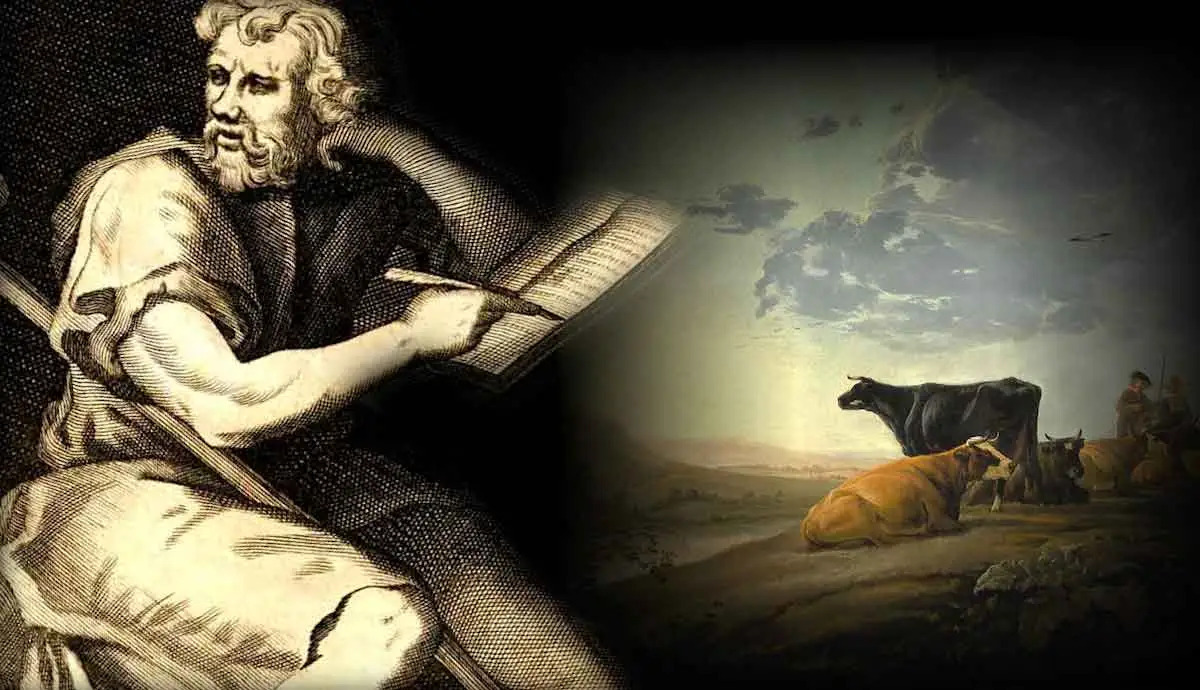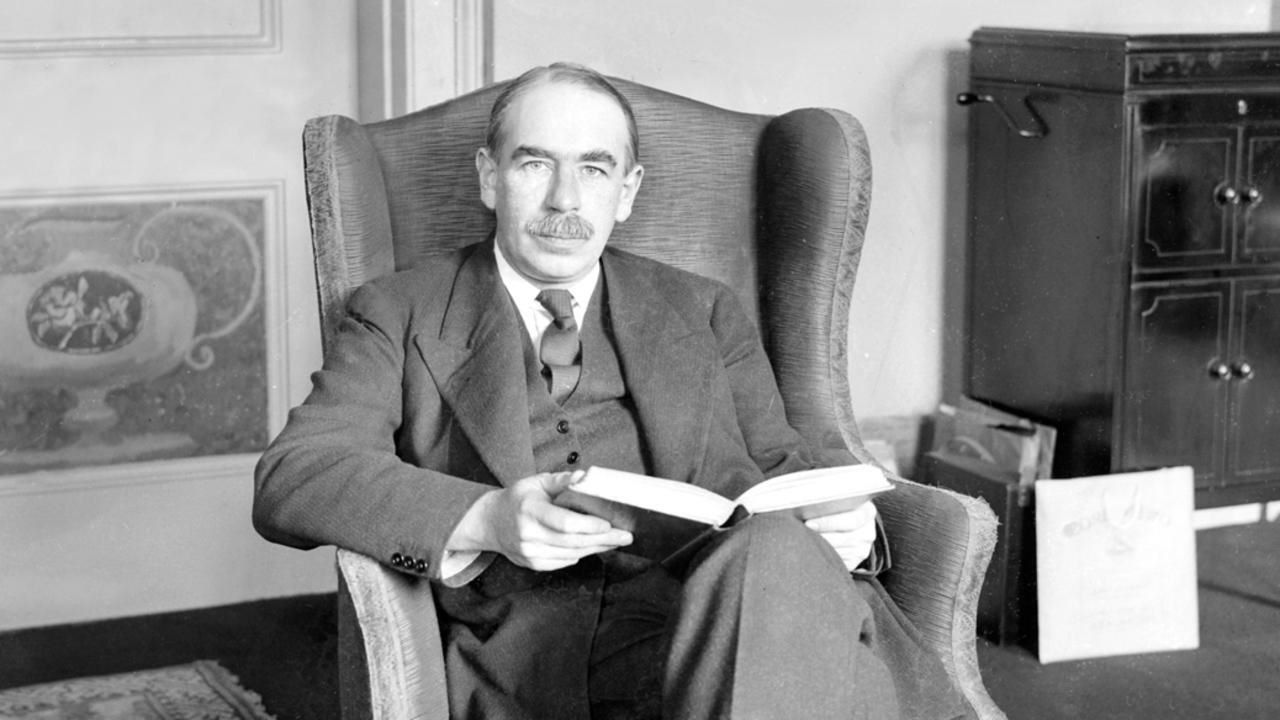
Epictetus, the ancient Greek philosopher, is a figure that continues to captivate scholars and individuals interested in philosophy. Born in the 1st century AD, Epictetus’ teachings center around the concept of stoicism and living a virtuous life. His ideas have resonated through the centuries, with his works being studied and admired by many. In this article, we will delve into the fascinating world of Epictetus and uncover 10 intriguing facts about his life and philosophy. From his humble beginnings as a slave to his profound impact on Stoic philosophy, each fact sheds light on a different aspect of Epictetus’ enduring legacy. So, buckle up and join us on this journey as we explore the remarkable life and teachings of Epictetus.
Key Takeaways:
- Epictetus, a former slave, became a famous philosopher despite his humble beginnings, teaching us that anyone can achieve greatness regardless of their circumstances.
- Epictetus’s focus on personal agency, self-discipline, and the power of choice continues to inspire people today, showing us the timeless relevance of his teachings in finding wisdom and tranquility.
Epictetus was born a slave.
Epictetus, the renowned Stoic philosopher, was born around 55 AD in the city of Hierapolis, Phrygia, which is present-day Turkey. He was born into slavery, but despite his humble beginnings, he managed to achieve great intellectual and philosophical success.
Epictetus was taught by Musonius Rufus.
During his time as a slave, Epictetus had the privilege of being taught by the philosopher Musonius Rufus. Rufus recognized Epictetus’ potential and mentored him in Stoic philosophy, which would greatly influence Epictetus’ own teachings later in life.
Epictetus never wrote any books.
Unlike many other philosophers of his time, Epictetus did not write any books. Instead, his teachings were passed down through his students, particularly his most famous student, Arrian, who compiled and recorded his lectures known as “Discourses” and “Enchiridion” (Handbook).
Epictetus believed in the power of personal agency.
Central to Epictetus’ philosophy was the concept of personal agency. He believed that individuals have control over their own thoughts, attitudes, and actions, and that they should focus on what is within their control rather than worrying about external circumstances.
Epictetus’s philosophy inspired Marcus Aurelius.
Epictetus’ teachings had a profound impact on Marcus Aurelius, the Roman Emperor and philosopher. Aurelius was deeply influenced by Epictetus’ teachings, particularly in his famous work “Meditations,” which explores Stoic principles and offers guidance for virtuous living.
Epictetus advocated for the use of reason.
Epictetus emphasized the importance of reason and rationality in navigating life. He believed that by using reason, individuals could make sound decisions, cultivate wisdom, and ultimately achieve inner tranquility.
Epictetus focused on the importance of self-discipline.
In his teachings, Epictetus stressed the significance of self-discipline and self-mastery. He believed that through discipline, individuals could overcome their passions and desires, leading to a more virtuous and fulfilling life.
Epictetus believed in the power of choice.
Epictetus taught that the power of choice is one of the most fundamental aspects of human existence. He encouraged individuals to recognize their ability to choose their responses to external events, thus maintaining their inner peace and happiness.
Epictetus’s philosophy influenced modern cognitive-behavioral therapy.
Epictetus’ ideas on the relationship between thoughts, emotions, and behaviors have had a lasting impact on modern psychology. His principles align closely with cognitive-behavioral therapy (CBT), a therapeutic approach commonly used to treat various mental health issues.
Epictetus’s teachings continue to be relevant today.
Epictetus’s philosophy resonates with many people in the modern age who seek guidance on leading a meaningful and fulfilled life. His focus on personal agency, self-discipline, and the power of choice has remained influential and continues to inspire individuals seeking wisdom and tranquility.
Conclusion
In conclusion, learning about Epictetus and his teachings can be a fascinating journey. As one of the most influential Stoic philosophers, Epictetus offers valuable insights on how to live a fulfilling and meaningful life. From his emphasis on focusing on what we can control to his teachings on accepting the inevitable, there is much wisdom to be gained from studying his philosophy.Epictetus reminds us that regardless of our external circumstances, we have the power to choose our thoughts, attitudes, and actions. This empowering mindset can help us navigate through the challenges of life with resilience and inner peace. By aligning ourselves with the natural order of the universe and practicing self-discipline, we can cultivate a sense of tranquility and live in harmony with our surroundings.By delving into the fascinating facts about Epictetus, we not only gain a deeper understanding of this remarkable philosopher but also unlock valuable lessons that can positively impact our own lives. Let us embrace his teachings and strive to live virtuous and fulfilling lives, guided by reason, wisdom, and self-mastery.
FAQs
1. Who was Epictetus?
Epictetus was a Greek philosopher who lived during the 1st and 2nd centuries AD. He was born into slavery and eventually gained his freedom. He went on to become one of the most prominent figures in Stoic philosophy.
2. What were Epictetus’ main teachings?
Epictetus believed in focusing on what is within our control and accepting what is beyond it. He taught that true happiness and freedom come from practicing self-discipline, living in accordance with nature, and cultivating wisdom.
3. What is the difference between Stoicism and other philosophies?
Stoicism, compared to other philosophies, emphasizes the importance of accepting and embracing the inevitable rather than trying to resist or change it. It teaches individuals to find inner peace and tranquility by aligning themselves with the natural order of the universe.
4. How can Epictetus’ teachings be applied in daily life?
Epictetus’ teachings can be applied in daily life by practicing self-awareness, recognizing our own limitations, and focusing on what we can control. By cultivating a rational mindset, embracing adversity, and finding value in every situation, we can lead more fulfilling and meaningful lives.
5. What impact did Epictetus have on future philosophers?
Epictetus had a significant influence on future philosophers, particularly during the Renaissance and Enlightenment periods. His teachings resonated with thinkers such as René Descartes and Immanuel Kant, and continue to inspire individuals today.
Epictetus's profound insights continue to inspire and guide us, much like the teachings of his fellow Stoic philosopher, Zeno of Citium. As we navigate life's challenges, we can also draw wisdom from the field of environmental ethics, which encourages us to consider our impact on the world around us. By exploring Zeno of Citium's Stoic philosophy and gaining wisdom from the field of environmental ethics, we can gain a deeper understanding of ourselves and our place in the universe, ultimately leading to a more fulfilling and purposeful existence.
Was this page helpful?
Our commitment to delivering trustworthy and engaging content is at the heart of what we do. Each fact on our site is contributed by real users like you, bringing a wealth of diverse insights and information. To ensure the highest standards of accuracy and reliability, our dedicated editors meticulously review each submission. This process guarantees that the facts we share are not only fascinating but also credible. Trust in our commitment to quality and authenticity as you explore and learn with us.


